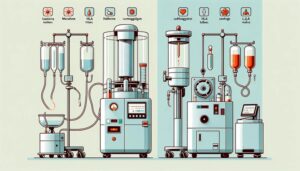
Impact of Pre-Bypass Ultrafiltration on Prime Values and Clinical Outcomes in Neonatal and Infant Cardiopulmonary Bypass
Pre-bypass Ultrafiltration (PBUF) was found to standardize and make more physiologic the values for electrolytes, glucose, and lactate in blood primes used for cardiopulmonary bypass in congenital cardiac surgery, without significantly affecting in-hospital outcomes. This retrospective study compared patients ≤ 1 year old undergoing cardiac surgery with PBUF to those without, showing significant improvements in the physiologic values of PBUF-treated circuits.





